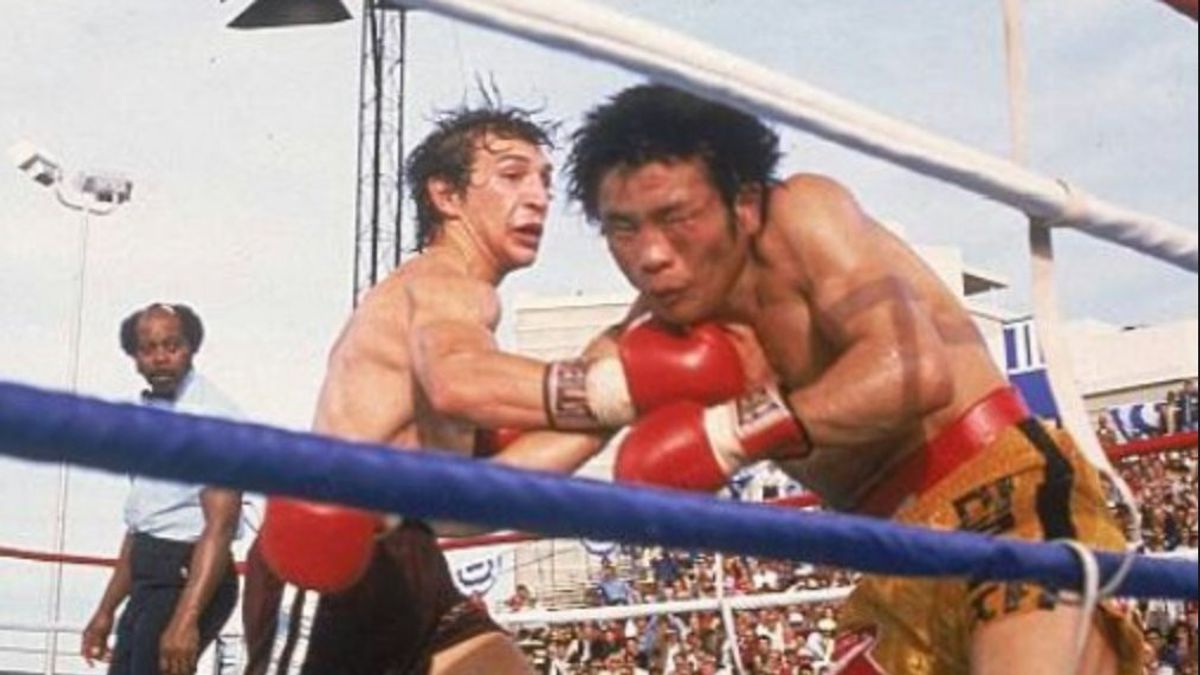
JAKARTA - Who originally came up with the idea to reduce the number of rounds in pro boxing fights from 15 to 12? It would be a big mistake to answer from promoters, pro boxing organizations, sports supervisory agencies, let alone the government.
The idea of reducing pro boxing fight rounds was brought up by a journalist. His name is Howard Cosell, a sports journalist who was also a television host on the ABC Sports channel from the 1950s to the 1980s.
Cosell is known as the sports journalist who was closest to Muhammad Ali. He followed Ali as an amateur, emerging as a pro boxer until the legend stepped down. Many quotes from Ali's famous sentences and boasts emerged because he was inspired by Cosell's reporting style which was full of criticism and "arrogant".

Their relationship is called miraculous because the two are completely opposite personalities. Cosell is a Jew, while Ali is a black Muslim. Ali was a playboy, married and divorced, while Cosell was only married once in 46 years until his wife, Mary, died in 1990.
"I hope to meet him in the afterlife," Ali said during a speech at Cosell's funeral in April 1995, as quoted by ESPN.
Maybe now Ali has met Cosell again. Even when Ali died in 2016. Cosell's name was mentioned in remarks from those close to Ali, at The Greatest's funeral service in Louisville, Kentucky on June 10, 2016.
The Trauma of Kim Duk-Koo's Death
Back to the original idea of reducing pro boxing fight rounds. It all started when Cosell was reporting the WBC heavyweight fight between Larry Holmes and Randy “Tex” Cobb in Houston on November 26, 1982.
The duel was criticized by Cosell as very unbalanced, Holmes was considered too dominant. Holmes was only able to win by 15 rounds, but Cobb was battered by Holmes's blow which hit him in the face too much. Cosell denounced the fight to the fullest.
Cosell is apparently still sad, angry, annoyed with the events that occurred two weeks before Holmes vs Cobb was held. The incident was the death of South Korean boxer Kim Duk-Koo after losing by knockout to Ray "Boom Boom" Mancini in the WBA lightweight title fight in Las Vegas on November 13, 1982.
Kim lost in the 14th round by knockout after being hit with a lot of punches. He passed out in the ring, and died 4 days later in hospital treatment. The Mancini vs Kim fight became the most tragic duel in the history of world boxing, because it didn't just swallow Kim as a victim.

Kim's mother, Yang Seon-Nyeo, who was too saddened by the death of her son, then committed suicide on January 29, 1983. On July 1, 1983, it was the turn of the referee who led the fight, Richard Green, to commit suicide due to the intense pressure he experienced after the Kim tragedy.
Cosell criticized the referee who officiated the Holmes vs Cobb match, Steve Crosson, for not responding quickly. Cosell wants Crosson to stop the fight. But at that time there was no rule that allowed the referee to stop the fight before one of the boxers surrendered. Cosell also sees the round too long as another factor causing fatality in pro boxing fights.
"I wonder, is this referee actually aware or not that he is making a campaign so that the sport he leads is immediately abolished?" said Cosell sarcastically when commenting on the Holmes vs Cobb fight on broadcast on ABC.
Cosell, who was horrified and traumatized by Kim's death, then threatened not to broadcast professional boxing reports again if the fight was still unbalanced, and the referee did not stop him immediately.
Boxing Rules Reform
Major reforms were then carried out, and most importantly the rules that allowed the referee to stop the match if the fight was not balanced. There is no need to wait until one of the boxers collapses or gives up.
The rule to keep boxers safe is now known as "no standing eight counts". The referee may immediately stop the fight, there is no need to count to eight when he sees a boxer is exhausted even though he is still able to stand.
SEE ALSO:
Another significant change as a result of Cosell's criticism was of course the reduction in the number of rounds of matches, from 15 to 12. The WBC started in 1983, followed by the WBA in the same year, and finally, the IBF adopted it in 1988 before other boxing organizations were born in the United States in 1990s to 2000s.

According to data from the Journal of Combative Sport in 2011, boxers' deaths in a century decreased by almost 50 percent after several new rules in boxing were introduced. It seems that new and up-to-date battle rules need to be made. The goal is of course so that the case of boxer deaths in the ring can be reduced by more than 50 percent.
The English, Chinese, Japanese, Arabic, and French versions are automatically generated by the AI. So there may still be inaccuracies in translating, please always see Indonesian as our main language. (system supported by DigitalSiber.id)















